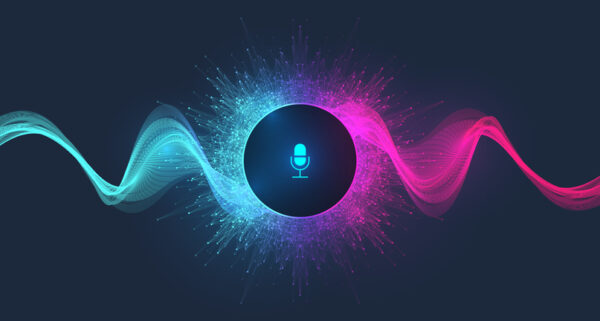
Voice-recognition AI software has improved the basic processes for a variety of professions, including restaurateurs, journalists, and any customer service organization that employs an automated call center. For the healthcare industry, voice-recognition AI in the examination room has shifted from a mere convenience to an urgent need.
Even before the Covid-19 pandemic reached the United States, and the ensuing “Great Resignation” took hold in the healthcare industry, burnout was a growing concern among physicians and other providers. Their jobs demand long hours and efficient interactions with ever-increasing numbers of patients. Electronic Medical Record (EMR) systems like Epic have transformed patient recordkeeping for the better, in addition to their benefits to the natural environment. But these benefits came at a cost.

Tips for Greater Healthcare Practice Success in 2025
Join us on February 26 at 3 pm ET, and we’ll dive into the key areas where practices are losing time and money and provide solutions to overcome them.
As paper records were phased out, providers bore the burden of updating each patient’s EMR with fastidious note-taking. This created a dilemma: when to record the notes into the EMR system? Providers could either input notes directly into a computer during the patient visit, or take notes mentally and update the patient’s EMR afterward. In this way, EMR technology frequently added to the burden on a doctor’s time, and might have placed a financial burden on the hospital itself. With their face-to-face time limited, patients and providers might focus on a single issue during each visit, and ignore any smaller medical issues. Those smaller concerns might go away, or they might become large ― in which case early intervention could have prevented costly clinical care and in-person visits in the future.
The unprecedented stress Covid-19 placed on the U.S. healthcare system exacerbated many of these pre-existing issues. A Michigan health system instituted a pilot program in Autumn 2021 to tackle the EMR dilemma head-on using a voice-recognition AI tool called Dragon Ambient, or DAX. The promise of the technology was twofold: to restore the intimacy of the doctor-patient interaction, and to save the provider time spent updating the EMR.
DAX involves a smartphone app that sits in the examination room, or anywhere in the vicinity of the provider and patient. With the press of a button, the voice recognition tool is activated. Every word of the visit is then recorded and transcribed. Nuance, the parent company of DAX, employs a human proofreader to control the quality of the transcriptions. Over time, the AI software effectively “learns” how to better transcribe for the individual speakers based on the proofreader’s corrections.
The result is a safe, secure, and accurate tool that delivers on its promise to save time and restore intimacy to the exam room. By recording and transcribing the entirety of a patient visit in a way that handwritten notes cannot (either offline or in an EMR), the burden on healthcare providers is reduced. One saw a decrease in 31 minutes per day in documentation. Another provider saw an average reduction of 5 minutes of documentation time per appointment. By giving the patient more leeway to express their full range of medical concerns, both patient and provider potentially incur fewer costs down the road.

Using Data to Help Healthcare Practices Succeed
A new report from Relatient, A Data-Driven Guide to Patient Access Succes, highlights how focusing on data accuracy and relevance can enhance the performance of healthcare practices.
Since the initial pilot program, which involved 13 providers, the health system expanded the use of DAX to 150 providers. Feedback from both parties has been overwhelmingly positive, with both patients and providers reporting their interactions seemed less transactional.
In this way, voice-recognition AI software has the potential to be the rare smartphone app that encourages face-to-face interactions. Its early results suggest the technology could be a game-changer for a healthcare industry in desperate need of one, boosting morale in the short-term while potentially saving money down the road.
Photo: berya113, Getty Images
Dr. Peter Y. Hahn is the University of Michigan Health-West President and CEO, and one of six currently serving hospital CEOs with a medical doctorate. He previously spent seven years on faculty at the Mayo Clinic. During his six years as the Director of Pulmonary, Critical Care and Sleep Medicine with Tuality Healthcare, an OHSU Partner, Hahn was named a “Top Doc” by Portland Monthly Magazine in 2012. He attained his Masters of Business Administration from the University of Tennessee Haslam College of Business in 2014, and joined University of Michigan Health-West in 2016.
This post appears through the MedCity Influencers program. Anyone can publish their perspective on business and innovation in healthcare on MedCity News through MedCity Influencers. Click here to find out how.








